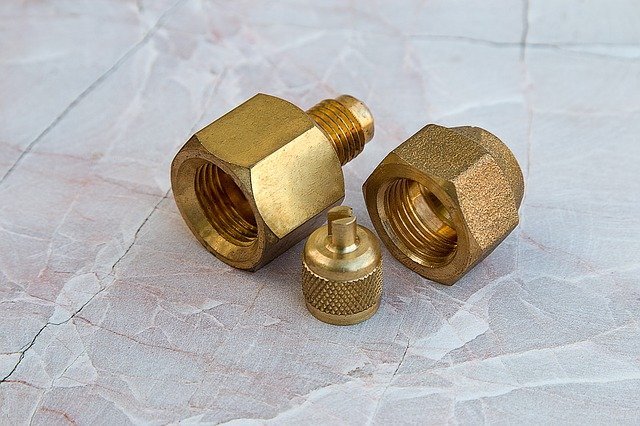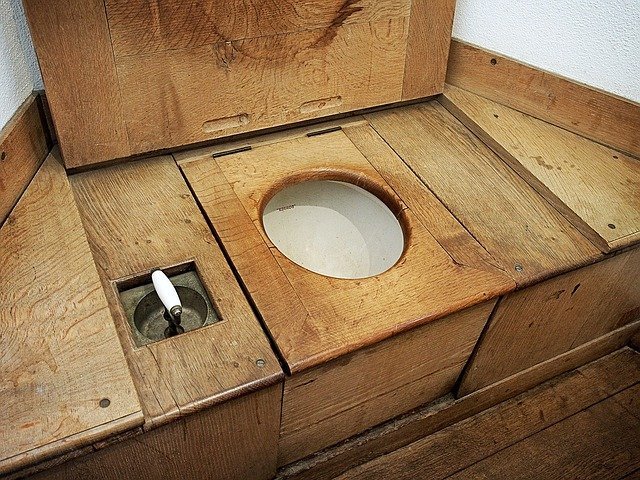
Water may be needed to live, but it is sometimes a nemesis to a homeowner with plumbing problems. There are not many ways to destroy a home’s structure than a major plumbing problem unfixed.
Understanding how your tools work can give you a tremendous boost when plumbing. You should read the manual with any new tool you purchase. If you don’t have the manual, look online or at your local library for more information. You should do the same amount of research on the steps required for your project. Plan thoroughly before attempting a repair. Mistakes can be very expensive to fix.
Noisy pipes that make squeaking or hammering sounds are actually a lot easier to fix than you would imagine. You must anchor all exposed pipe.
While various toilet tablets and odor removers may be tempting, it’s best not to use them in your toilet. Either kind of toilet tablet might break down obnoxious smells in your toilet, but they might also break down the rubber parts, resulting in malfunction.
If a water pipe freezes, be sure to turn on the faucet that is closes to the pipe to give the water an exit as the pipe thaws. This will help relieve pressure in pipes to prevent them from bursting, which can prevent further damage to your home.
Never try to fix a garbage disposal by putting your hand down into it. Your garbage disposal is a dangerous device, even when turned off. Hire a professional, or at least find your owner’s manual to look at a diagram of the disposal. Many owner’s manuals are available online, and may even contain interactive troubleshooters.
Septic Tank Pumped
Frequently inspect the floors around toilets for softness; this can tell you whether or not the floors are damaged. Stand over the toilet, then rock it back and forth to see if any weakening in the floor has occurred. Discovering this issue sooner can mean big savings for your checking account, as compared to finding out about it later.
You should clean your septic tank pumped once every five years! Although having a septic tank pumped costs money, it will cost a lot more having to clean sewage backup or having to fix or replace a septic tank.
Keep a strainer over every drain in your house to prevent stray debris from clogging your pipes. You should clean your strainer in your kitchen anytime you have anything in it. Bathtubs should be equipped with strainers as well, and they too will need to be cleaned regularly.

Do not pay anything until they finish the problem is fixed. You may need to make a small down payment before the job has begun, but do not give them the entire sum of money until you are sure they have done a good job. It is good to know that your problem has been solved before parting with a large sum of money.
If you notice orange or pink stains in your bathroom fixtures, this is because of the iron in your water. You can use water softener that you buy at the store to remedy this situation, or you can have a professional do it for you.
Knowing what tools are what and how to use them can help greatly in your plumbing experience. Be sure to plan before starting a repair, it could very expensive to fix the mistake.
Use baking soda and one cup of vinegar per month to keep the bathtub drain clear and running well. Cover with a rag or plug, as a chemical reaction will occur in the pipes. Allow some time to pass, then follow up by pouring down boiling hot water. Although this is useful for clearing away simple clogs made of hair and soap debris, it will not work for serious blockages.
If your house uses well water and you start to see orange or pink stains in your tub and other water fixtures, this occurs when the water has too much iron. A water softener is the easiest way to solve hard water problems relating to rust, or you may opt to have a professional to come and install it for you.
Installing efficient shower heads could save you a lot of money when it comes to your energy bill. Most of our hot water is used in the shower. Invest in an energy-efficient shower head and you could save a hundred dollar every year on your water bill.
Schedule your plumbing work at the same time. You may want to have each minor problem attended to as the occur, but kicking the can on some issues until you have a list means you can save a few bucks. Most plumbers have an hourly rate and a flat rate for the trip: asking a plumber to fix multiple problems in one visit to your home.
If you have any water in your dishwasher that should not be there, check the connection on your kitchen sink. This hose should lead uphill first and then downhill so the water from the sink and the dishwater never mix.
Knowing how plumbing works, having a good idea of how to fix things, and keeping basic plumbing materials at hand will help avoid major plumbing problems. The savvy homeowner who takes the time to learn even a little about plumbing is better able to make good decisions while avoiding plumbing situations that could become dangerous. A homeowner who knows something about plumbing can often fix issues before they become major crises.
Do not use your toilet to get rid of garbage. Under no circumstances flush cotton balls or swabs, paper towels, diapers, sanitary pads or other materials that will not dissolve. These items can cause major clogs. Try to minimize the amount of toilet tissue that gets flushed, too – but don’t neglect basic hygiene!

